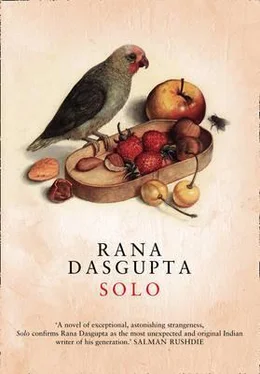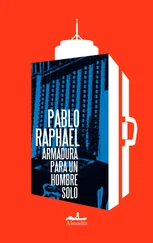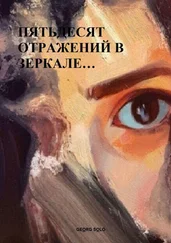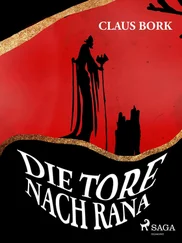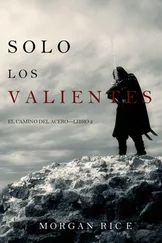Ulrich is sitting on a bench, looking up at the sky. He sees an arrow of geese flying overhead, and though they are inconceivably high he fancies he can hear their cries. He says,
‘I’m sorry I failed you, Clara. You cannot have regretted it as much as I did.’
Clara does not respond, and Ulrich says,
‘I didn’t know how to hold everything together. I had to go and save my parents, it was the only thing to do. But I loved you, and I couldn’t live up to my love. I always wondered what would have happened if I had stayed with you in Berlin.’
Clara’s hair is tied up, but a slight breeze plays among the grey wisps at her temples. The strands are iridescent, for by now the clouds have all gone. It is a beautiful day.
‘You know this is all a dream,’ Clara says.
‘What do you mean?’
‘You and me, together in New York?’ She cuffs him playfully with the back of her hand. ‘You must know I died long ago — a Jewish woman in Berlin in those days, married to a Jewish professor. In your heart you know that, yes? You know we’re not really here, and it’s only a dream?’
Ulrich says,
‘Yes, I know.’
But he cannot leave it there.
‘It’s a dream, Clara, but it’s not only a dream. There is far more to us than what we live.’
He speaks with unusual passion.
‘Life happens in a certain place for a certain time. But there is a great surplus left over, and where will we stow it but in our dreams?’
Clara stares into her lap. She says,
‘Those children of yours are imaginary.’
‘I have a real son, who is even more imaginary. These ones stay with me, and make me proud.’
A butterfly alights for a time on Clara’s floral dress, and then takes flight again.
‘When I die,’ says Ulrich, ‘they will put me under the ground, where even those with eyes become blind like me. I will lie with an eternity of dreamers, breeding visions that will flicker on the surface — and the children of my daydreams will roam free.’
18
ULRICH SITS ON A DOORSTEP opposite the entrance to Boris’s apartment block. He has tried repeatedly to gain entrance, but Boris is famous now, and security has tightened. Still, when he finally emerges, he is accompanied only by his violin, and for this Ulrich is grateful. He walks fast to catch up with him.
To his relief, Boris is not hostile. When he sees Ulrich he stops in his tracks and says,
‘Is it you, old man?’
Ulrich leans against a wall to regain his breath. Nothing about Boris’s appearance reveals his new-found success and prosperity. Ulrich would like to take him in his arms. But now is not the time. He says,
‘I wanted to say something about your friend, Irakli. I’ve seen him, wandering in the streets on his own. He’s not himself.’
Boris is surprised at this intervention. But he agrees with its spirit.
‘I’ve been worried about him myself. You think he’s very bad?’
‘He needs something to set him back on track,’ Ulrich says. ‘And it can only come from you.’
Boris thinks for a moment.
‘I know what to do,’ he says. ‘I know what’s good in these situations.’
‘Please think about him,’ says Ulrich. ‘He’s more delicate than you.’
He puts his hand in his pocket and takes out two marbles. Looking into Boris’s eyes, he puts the marbles into his hand, as if they were a token of his solemnity.
Boris arrives at Irakli’s apartment with an animal wrapped in a sack.
‘I was thinking about what might restore you to yourself again,’ he says.
He opens the sack and lets out a little pig. It’s small and pink, with two grey patches on its flanks. It feels exposed in the spacious room, and runs away squealing, keeping close to the walls, trotters clicking on the wooden floor.
‘You have this big balcony where he can live,’ says Boris. ‘Pigs are very intelligent and they fill your head with wild ideas. He’ll be good for your poetry.’
‘I already have a parrot.’
‘The parrot is nice, but you need something closer. A horse is good sometimes, but a pig is best. You’ll write much better with a pig around.’
Boris goes to get nails, wood and roofing, and he builds a shelter for the pig on the balcony. They drink beer and laugh while he works. Irakli is impressed by how fast Boris can build, and makes no attempt to get involved. The pig sniffs at the planks of wood and eats an apple from Irakli’s hand. Its ears are enormous for its little size.
Boris saws and hammers, his breath clouding in the air, and before long he has built a sty into the crook of the building, big enough for a man to stoop into. He lays down straw and newspaper inside, and the pig goes in of its own accord to look around. Boris says,
‘After everyone left my town, I grew up with pigs,’ he says. ‘I slept between them.’
‘Thank you,’ says Irakli. ‘Thank you.’
Afterwards, they go out to a bar. Irakli is suddenly animated and cannot stop talking. He tells stories, and finishes his drinks so fast that Boris tells him to calm down.
‘Are you trying to empty the bar?’ he asks.
‘I’m thirsty,’ Irakli says.
He tells Boris about things he has seen in New York.
‘There’s a tower where ten thousand Africans live. It’s not far from here. People from Senegal on one floor, Nigerian on the next. Some are legal, some are illegal; they’ve come to supply the city’s cravings for luxury handbags and DVDs. Can you imagine the stories in a tower like that — the friendships, the conflicts, the journeys people have taken just to get there? I tell you: no one is writing the real novels of our age. There must be more in that tower than in Tolstoy and Balzac together.’
Boris listens quietly, happy to see him spirited.
‘Writers have a lot of work to do,’ finishes Irakli.
The music is calling out to him and he says,
‘Do you want to dance?’
Boris shakes his head, smiling, and Irakli goes on his own. He stands next to the speaker and begins to move. His steps, once again, are Georgian. His legs scissor, slicing beats in half, and soon enough there are people gathered around him, who have never seen feet move so fast to keep a torso so still. He dances for several songs, transforming himself completely with every new mood. Now his heels stamp and he slices the air with his hands, his eyes gleaming with masculine seduction; now he beckons to the earth like a woman. He puts a bottle on his head and spins on his knees, finding a corridor through the crowd, and there seem to be no limits on his body — for now he is leaping close to the ceiling and there is gasping and cheering in the bar.
When he finishes they call for more, but Irakli is spent. He bows elegantly, heaving with breath, and he goes back to the table. He is happy and sweating. Boris puts an arm round him.
‘I love to see you dance,’ he says.
A stranger is sitting in Irakli’s place, who has come to ask for autographs from Boris. Irakli stands by, waiting for the man to leave. He has another drink to cool down. He suddenly feels tired and rests his head on the table. He has drunk too much.
He does not feel well.
He looks out of the window, trying to steady his stomach. The street is quiet, but he can see a figure he recognises. He goes to the door and calls out to his sister, who is walking with Plastic. They turn back when they hear him; they come into the bar and stand by the table.
‘Hello, Boris,’ Plastic says emphatically.
‘This is my brother, Irakli,’ says Khatuna to Plastic.
‘Yes, I remember,’ says Plastic, reaching out for Irakli’s hand. Irakli fails to register it.
‘Are you drunk?’ Khatuna asks him.
Читать дальше
Конец ознакомительного отрывка
Купить книгу
